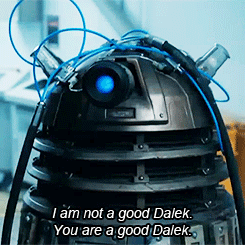Tempo fa uno sviluppatore dietro ad
Uncharted 3, Jacob Minkoff, ha messo sul suo blog un articolo relativo a FiM: non solo dice che gli piace, ma soprattutto
perchè gli piace.
http://jacobminkoff.com/2011/07/11/omgponies111/Action flicks, romantic comedies, children’s movies – those are the difficult stories to tell. Easy to get greenlit, hard to execute well. Robocop, Die Hard, Groundhog Day, Toy Story — these are all films that had no business being good. Literally. They didn’t need to be. People would have gone to see them regardless because of the cast, or the splosions, or the toys in the Happy Meal their kid got. These movies would have made their margins, put the studio in the black, and then quietly slid into obscurity, making room for the next year’s “good enough” fare. The bean counters would have been happy — they want “safe,” not “good” — and the directors, writers, and crew would have gotten more work. That’s how the entertainment business functions.
Instead, those who made them decided to try harder. They didn’t see the constraints of popcorn cinema as a limitation. They saw it as a challenge! All these films live on as icons of cinema today because their creators pitched a simple, digestible concept that they knew could get funding, and then they excelled.
As much as I love cerebral films like Memento or Primer, I’m far more impressed by genre entertainment done well. When you don’t have lofty concepts to lean on, when your audience wants to be entertained, not challenged, the difference between a sublime popcorn experience and a waste of $10 lies completely in the mastery of the basic craft of storytelling. Like Sullivan’s Travels argued, the best stories aren’t the ones that speak to the nature of the human condition – they’re the ones that wash over you easily, grip you in their cathartic embrace, and let you forget about your troubles for a while.O in breve: le storie più difficili da fare non sono quelle impegnate che vanno a premiazioni come "Il Cinema di Venezia" e simili, che anche se possono essere memorabili sono una cosa ben diversa dal lavorare per il vero mercato d'intrattenimento. Quando invece lavori per un tipo di mercato che ti chiede esclusivamente storie "usa e getta", li sta la vera sfida di un artista: creare qualcosa che risponda perfettamente alla fama di svago e distrazione di un pubblico disattento, e dentro questi limiti creare qualcosa che aspiri a raggiungere l'eccellenza in ogni aspetto: la storia, la narrazione, effetti speciali e recitazione.
Le storie migliori non sono quelle che raccontano la natura della condizione umana, ma quelle che ti fanno dimenticare i tuoi problemi per un pò abbracciandoti nella loro presa ipnotica.Che dire: si potrebbe essere d'accordo o contro, ma ha ragione su un punto, tantissimi cult sono nati come prodotto di puro svago e intrattenimento, senza pretese e senza voler essere speciali nella radice. Ciò che li ha resi indimenticabili è stato l'impegno e il talento di chi ci ha lavorato.


















 )
)










